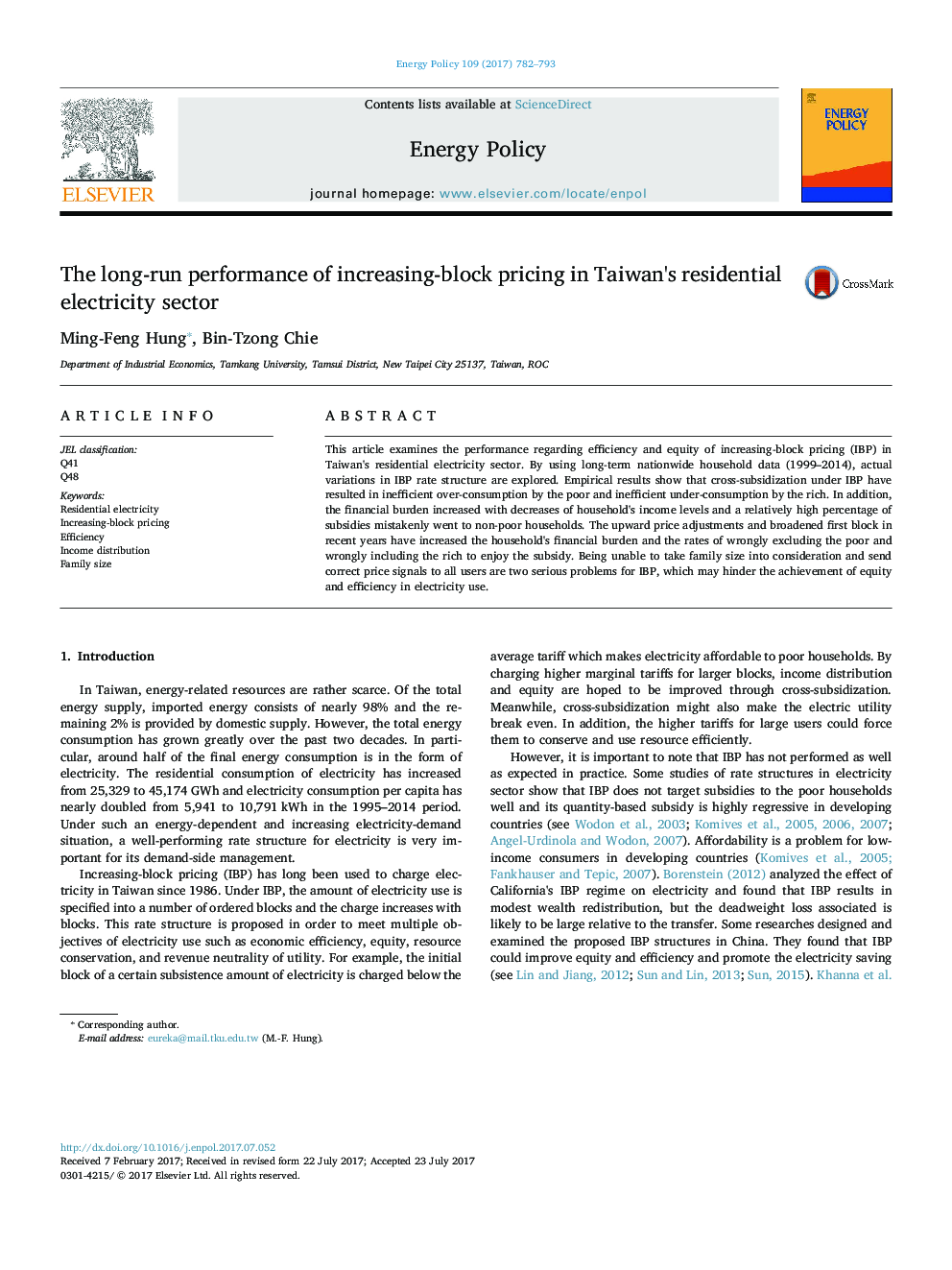| Article ID | Journal | Published Year | Pages | File Type |
|---|---|---|---|---|
| 5105710 | Energy Policy | 2017 | 12 Pages |
Abstract
This article examines the performance regarding efficiency and equity of increasing-block pricing (IBP) in Taiwan's residential electricity sector. By using long-term nationwide household data (1999-2014), actual variations in IBP rate structure are explored. Empirical results show that cross-subsidization under IBP have resulted in inefficient over-consumption by the poor and inefficient under-consumption by the rich. In addition, the financial burden increased with decreases of household's income levels and a relatively high percentage of subsidies mistakenly went to non-poor households. The upward price adjustments and broadened first block in recent years have increased the household's financial burden and the rates of wrongly excluding the poor and wrongly including the rich to enjoy the subsidy. Being unable to take family size into consideration and send correct price signals to all users are two serious problems for IBP, which may hinder the achievement of equity and efficiency in electricity use.
Related Topics
Physical Sciences and Engineering
Energy
Energy Engineering and Power Technology
Authors
Ming-Feng Hung, Bin-Tzong Chie,
